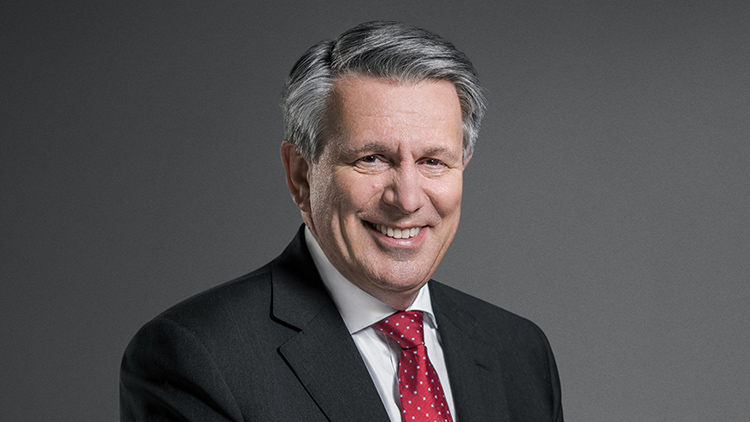Introduction from the CEO

“We need to fulfil the growing demand for energy, with more natural gas and cleaner energy products.”
In 2016, the world took significant steps towards building a low-carbon energy future. The United Nations (UN) Paris Agreement and the UN's sustainable development goals came into force, setting new targets for tackling climate change, promoting sustainable economic growth and providing access to modern energy.
It was also a significant year for Shell. Against a backdrop of low oil prices, we acquired BG, which added to our operations and opportunities in natural gas, the cleanest-burning hydrocarbon, and in deep water.
As part of a refreshed business strategy, we set long-term environmental and social ambitions: to reduce our carbon intensity and to deliver shared value for society. This includes creating jobs and investing in communities. But it also means providing more and cleaner energy solutions.
Environment and safety
In 2016, we reduced greenhouse gas (GHG) emissions from the facilities we operate, even with the addition of BG projects to our portfolio.
We achieved this partly by reducing flaring in our operations and through our Quest project in Canada, where we safely captured and stored deep underground more than 1 million tonnes of carbon dioxide (CO2) from our oil sands operations. The sale of some of our businesses also contributed to the reduction.
Our goal is to work without causing harm to people and the environment. However, we had three fatalities in 2016, which is unacceptable. Our company must continue its efforts to ensure safety wherever we work. We must encourage staff and contractors to be alert to their own safety, to care about the safety of their colleagues, and to look out for any potential safety risks in all our operations, however small.
Overall, we continued to reduce the number of process safety incidents in our operations, such as leaks or spills of hazardous materials.
Shaping Shell
Our business strategy includes creating a world-class investment case for shareholders and strengthening our leadership in the oil and gas industry, while positioning the company for growth as the world transitions to a low-carbon energy system.
From 2017, employee bonuses, including those of Shell’s Executive Committee, will also reflect our progress in managing GHG intensity, in particular CO2 and methane. Here, we will focus on three operational areas: refining, chemical plants and flaring in upstream projects.
The choices we make to shape our portfolio should take into account the shift to a world of lower GHG emissions. We will specifically consider the carbon intensity of projects when taking decisions about which assets we decide to invest in.
In 2016, we created a New Energies business to continue to explore investment opportunities in areas including biofuels, hydrogen and renewable energy. This business will also look for opportunities in energy solutions that combine wind and solar power with gas, for example, and new ways to connect customers to energy.
Enabling the energy transition
The Paris Agreement has set targets for tackling climate change. I want Shell to promote and play a role in the energy transition to a low-carbon future when there is clear commercial value. A world of net-zero emissions of GHGs is both technically and economically feasible towards the end of the century, according to our Scenarios team, which considers possible futures.
Government policy will be critical to creating the conditions for making the transition to cleaner energy across all sectors of the economy commercially possible. Shell continues to call for effective government-led carbon-pricing mechanisms, which would support the commercial development of technologies that can reduce emissions, such as carbon capture and storage.
We are currently working with some countries to help them shape their energy future. For example, we are helping policy makers in the Netherlands in their efforts to explore the energy mix the country would need to reduce its GHG emissions.
It is also important that we work with coalitions, both within industry and more broadly, to help meet the challenge of climate change. In late 2016, for example, we were one of 10 oil and gas companies that jointly pledged to invest $1 billion in technologies with the potential to reduce GHG emissions. We are a founding member of the Energy Transitions Commission that brings together energy companies, investors, public and academic institutions, and foundations.
Shared value
What is shared value? Our work at Shell helps to create jobs. We pay taxes, invest in communities close to our operations, develop local supply chains and train local people.
But that is not enough. We need to build on this to fulfil the growing demand for energy, with more natural gas and cleaner energy products. There are still more than 1 billion people without access to electricity; those who use basic materials, such as firewood, for heating their homes or cooking meals.
Shell has a part to play in improving access to energy. We can offer new supply models for communities that are underserved, where sufficient commercial value is available. For example, we can provide cleaner energy solutions, by offering energy powered by a combination of natural gas and renewable energy. That is why we have made creating shared value a strategic aspiration for Shell.
The 2016 Sustainability Report
This Sustainability Report details our social, safety and environmental performance during 2016. Once again, we appreciate the input of the External Review Committee, which consists of leading sustainability experts, as we develop our thinking in this area. They also play an important role in developing our reporting.
Shell is a founding member of the UN Global Compact that aims to promote environmental protection, human rights, better labour practices and anti-corruption standards through good corporate governance.
Today, we continue to build on that work as we reshape our company and work with others to help deliver the energy that the world needs.

Ben van Beurden
Chief Executive Officer
